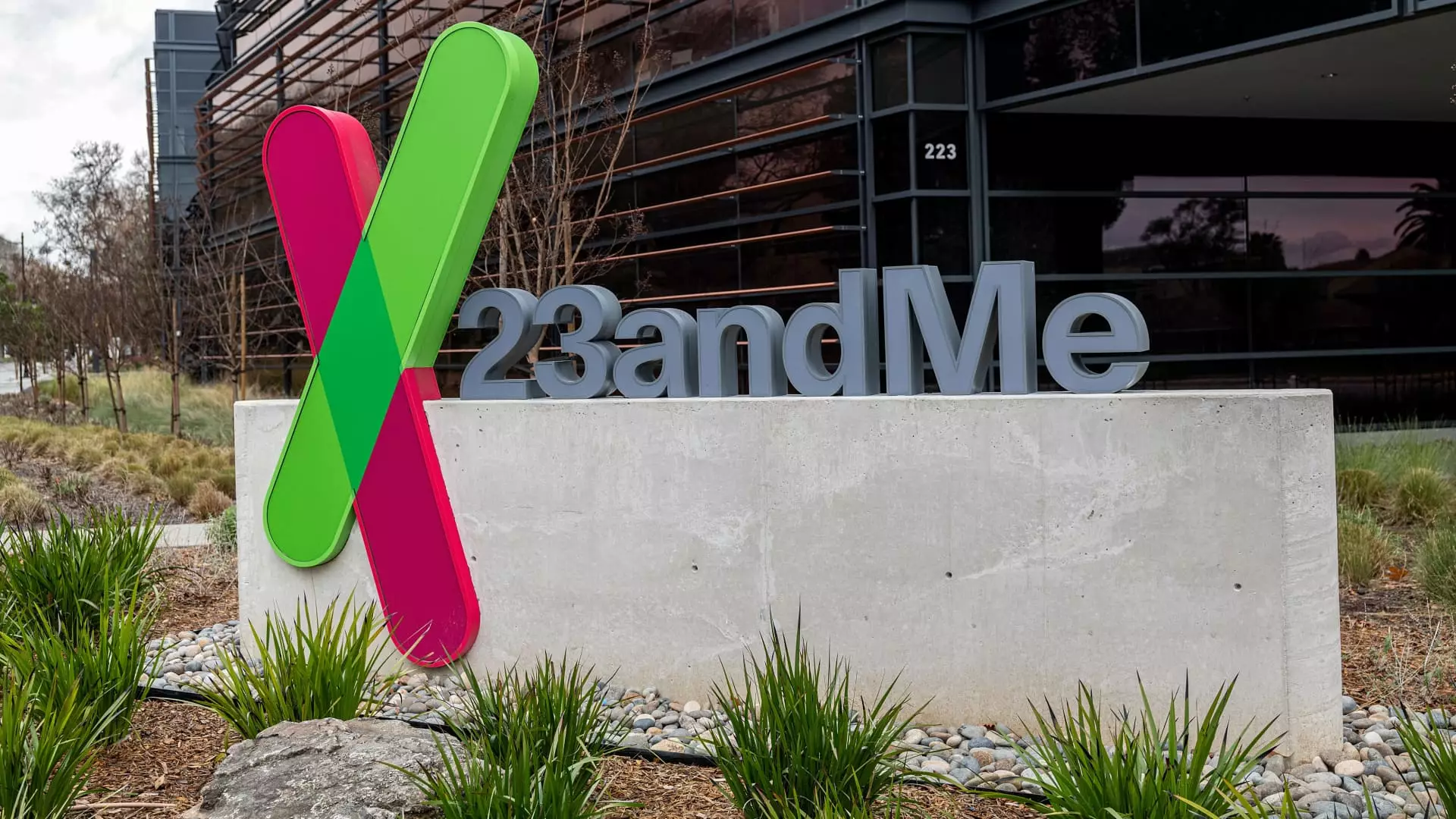The recent news of 23andMe seeking Chapter 11 bankruptcy protection has sent shockwaves throughout the biotech community and among its millions of users. The company’s struggles are more than just financial; they trigger a cascade of privacy concerns regarding the sensitive genetic data it houses. As genetic testing becomes increasingly popular, users must grapple with the risks associated with putting their unique biological blueprints into the hands of a company in turmoil.
A pressing question arises: what happens to the vast genetic data repository if 23andMe is sold? The reality is that this data cannot be fully anonymized, and its exposure could lead to severe consequences, including identity theft or insurance fraud. With hackers having already breached the information of nearly 7 million customers, the integrity of one’s genetic data is more vulnerable than ever.
The Intricacies of Genetic Data Security
DNA, while a treasure trove of information—covering everything from health predispositions to familial ties—serves as the ultimate target for cybercriminals. Rightfully highlighted by experts, the risk is exacerbated in a scenario where a company is facing bankruptcy and potential asset liquidation. 23andMe’s reassurances about maintaining commitment to customer privacy during the sale process ring hollow for many. The financial strain and instability inherent in a bankruptcy filing bring into question the security protocols that once felt robust and assured.
There is a glaring irony in the fact that 23andMe continues to market its at-home DNA testing kits despite the company’s precarious situation. It showcases a conflict of interest: the imperative to sustain revenue through sales of genetic kits versus the heightened responsibility to safeguard existing customers’ data. This is a point that consumers must weigh carefully—does the allure of uncovering family history outweigh the potential danger of sharing one’s genetic information?
A Call for Proactive Measures
In light of these developments, experts like California Attorney General Rob Bonta have urged consumers to take charge of their information by considering deleting their data from 23andMe. His appeal is a wake-up call for many who might have been complacent about the safety of their genetic information. Users must now reconsider their relationship with this company—an organization that thrived on the premise of trust and user engagement, but is now marred by financial woes and privacy breaches.
Adrianus Warmenhoven’s description of genetic data as a “blueprint of your entire biological profile” is poignant. It highlights the magnitude of what is at stake and reinforces the urgency of being vigilant about one’s digital footprint. Consumers should not only think about deleting their data from companies in precarious positions but also proactively revoking permissions from all digital entities, examining how their personal information is being utilized.
The Role of Ethical Considerations
The responsibility does not solely lie with the consumer. Companies [like 23andMe] must operate within an ethical framework that prioritizes user privacy and data protection over expedient profit. If a buyer emerges from the bankruptcy process, they must commit to a governance structure that fosters transparency and user-centric policies. 23andMe’s pledge—that any potential buyer will be legally bound to comply with data laws—is a step, but not necessarily a safeguard against future violations or data mishandling.
Today’s digital landscape necessitates a demand for ethical stewardship of genetic information. Just as we title our medical histories as personal, our genetic data, being far more intimate, arguably warrants even higher standards of security and ethical governance. It is essential that consumers advocate for such measures.
The Path Ahead for Consumers
Navigating this crisis requires an informed and vigilant consumer base. If you’re a 23andMe customer contemplating your next steps, the process for removing your data is outlined explicitly on their site. The straightforward instructions may offer a modicum of reassurance, but the bigger picture suggests a monumental shift in how consumers should view and engage with genetic testing companies.
Moving forward, consumers must prioritize their individual rights when it comes to genetic privacy. This situation serves as a potent reminder that data ownership is as crucial as the data itself. As we tread deeper into the age of genetics, we must raise our voices, demand accountability, and champion the ethical handling of our most personal information.

